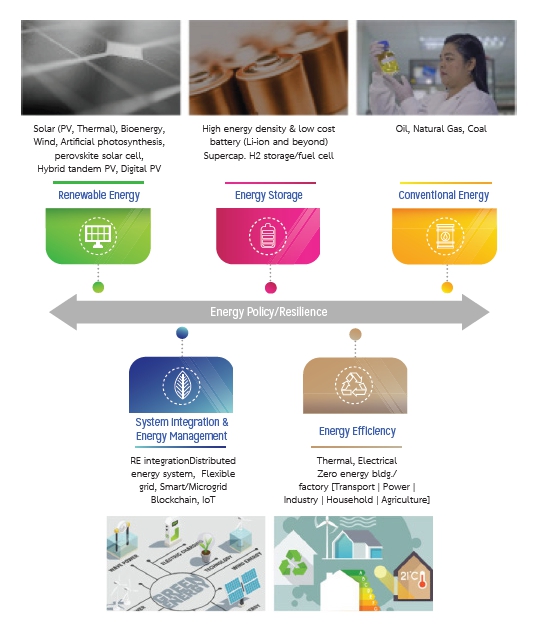ENTEC’s operational guidelines focus on works related to the following 4 aspects:
1. Excellence – carrying out works with expertise and professionalism to achieve high-quality outputs.
2. Relevance – complying with National Strategic Plan and the needs of target users.
3. Impact – creating an economic impact, improving the quality of life and enhancing the country’s competitiveness through research, development and engineering.
4. Visibility – building trust and confidence in quality and expertise at national, regional and international levels.
Working Guidelines
ENTEC has systematically developed working mechanisms through Technology/Research S-curves as an assisting tool for research management, resource allocation, and work planning.
In the first five years, ENTEC will focus on 5 areas of research and development on energy technology as follows.
1. Renewable Energy
2. Energy Storage System
3. Conventional Energy
4. System Integration and Energy Management
5. ENERGY EFFICIENCY

